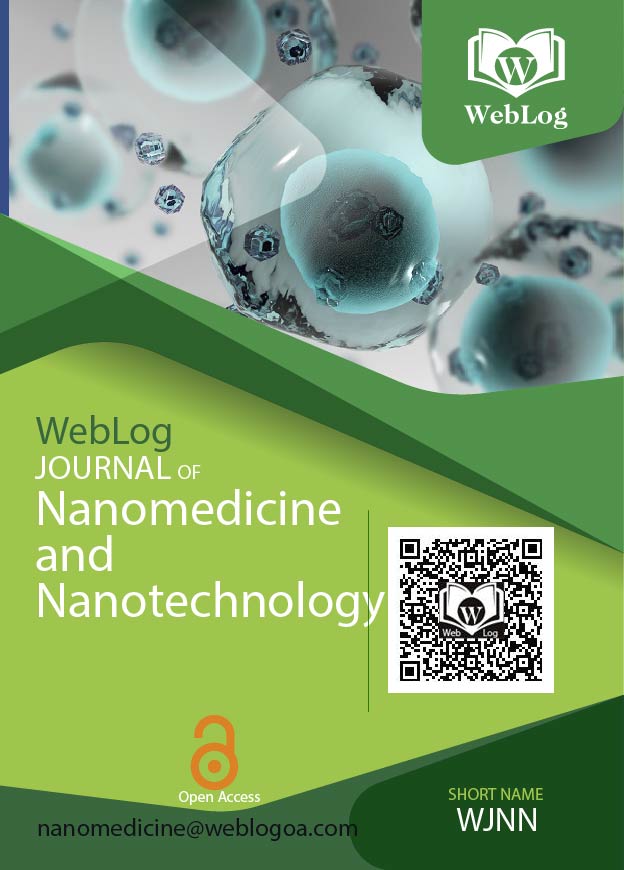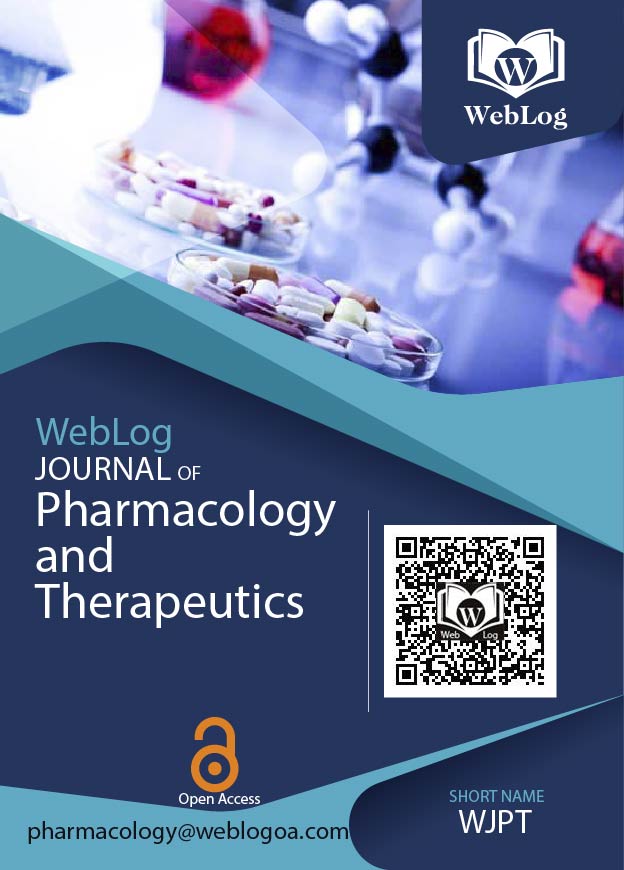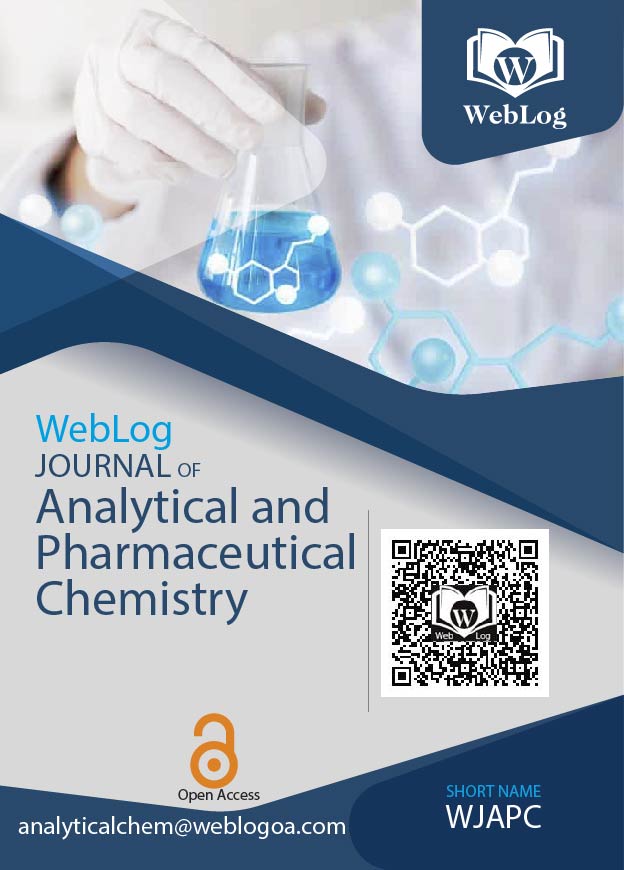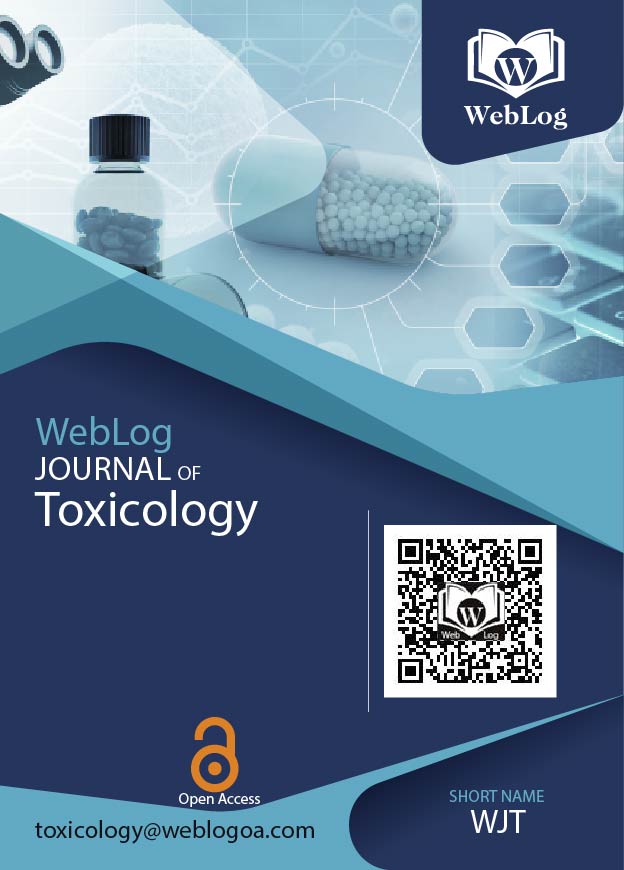Editor Profile

Dr. Wenpan Li, Ph.D.
Postdoctoral Research Associate
May 2021 - Present
The University of Arizona
Tucson, AZ
United States
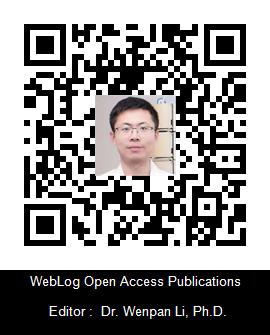
Wenpan Li, Ph.D., is a dedicated professional specializing in the field of Pharmaceutics biotechnology. He currently serves as a Postdoctoral Research Associate at the University of Arizona, USA. Dr. Li's academic journey is marked by notable achievements, including the completion of his Ph.D. in Pharmaceutics at Shenyang Pharmaceutical University in China. He also holds a Master's degree in Pharmaceutics from the same institution and received his Bachelor's degree in Pharmaceutics from Jining Medical College, reflecting his enduring commitment to education and research.
Dr. Li's professional experience includes his current role as a Postdoctoral Research Associate and previous positions as a Teaching Assistant at Shenyang Pharmaceutical University. He has made significant research contributions in the areas of nanoparticle formulations, gene delivery systems, and tumor therapy enhancement, as evidenced by his numerous publications in reputable journals.
In addition to his academic and research pursuits, Dr. Li has actively participated in research grants, with a notable project funded by the National Nature Science Foundation of China. Throughout his journey, he has been honored with scholarships and awards, including National Scholarships and Academic Scholarships.
Dr. Li remains profoundly dedicated to advancing the fields of pharmacaceutics and Pharmacokinetics, aiming to contribute to scientific progress with humility and a commitment to lifelong learning.
- Pharmacology
- Toxicology
- Lipid Nanoparticles
- Gene Delivery
- Immunity Therapy
- Wang, Z.; Li, W.; Lu, J., Sphingomyelin-derived epacadostat nanovesicle enhances IDO1 inhibition for improved melanoma combination immunotherapy. Genes & Immunity 2024, 1-3.
- Wang, Z.; Li, W.; Jiang, Y.; Tran, T. B.; Chung, J.; Kim, M.; Scott, A. J.; Lu, J., Camptothesome-based combination nanotherapeutic regimen for improved colorectal cancer immunochemotherapy. Biomaterials 2024, 306, 122477.
- Wang, Z.#; Li, W.#; Jiang, Y.; Park, J.; Gonzalez, K. M.; Wu, X.; Zhang, Q.-Y.; Lu, J., Cholesterol-modified sphingomyelin chimeric lipid bilayer for improved therapeutic delivery. Nature Communications 2024, 15 (1), 2073.
- Jia, N.; Wang, Q.; Li, W.; Chen, D.; Hu, H., Membrane Fusion Liposomes Deliver Antifibrotic and Chemotherapeutic Drugs Sequentially to Enhance Tumor Treatment Efficacy by Reshaping Tumor Microenvironment. Advanced Healthcare Materials 2024, 2400219.
- Wang, Z.; Li, W.; Jiang, Y.; Tran, T. B.; Cordova, L. E.; Chung, J.; Kim, M.; Wondrak, G.; Erdrich, J.; Lu, J., Sphingomyelin-derived nanovesicles for the delivery of the IDO1 inhibitor epacadostat enhance metastatic and post-surgical melanoma immunotherapy. Nature Communications 2023, 14 (1), 7235.
- Li, W.; Jiang, Y.; Lu, J., Nanotechnology-enabled immunogenic cell death for improved cancer immunotherapy. International journal of pharmaceutics 2023, 634, 122655.
- Jiang, Y.; Li, W.; Wang, Z.; Lu, J., Lipid-based nanotechnology: Liposome. Pharmaceutics 2023, 16 (1), 34.
- Jia, C.; Zhang, S.; Li, W.; Chu, C.; Hu, H.; Wang, M.; Chen, D., Co-delivery of combretastatin A4 and docetaxel with pegylated nanostructured lipid carriers in tumor cells. Tropical Journal of Pharmaceutical Research 2023, 22 (10), 2029-2037.
- Zhao, C.; Chen, Q.; Li, W.; Zhang, J.; Yang, C.; Chen, D., Multi-functional platelet membrane-camouflaged nanoparticles reduce neuronal apoptosis and regulate microglial phenotype during ischemic injury. Applied Materials Today 2022, 27, 101412.
- Wang, Z.; Li, W.; Park, J.; Gonzalez, K. M.; Scott, A. J.; Lu, J., Camptothesome elicits immunogenic cell death to boost colorectal cancer immune checkpoint blockade. Journal of Controlled Release 2022, 349, 929-939.
- Li, W.; Gonzalez, K. M.; Chung, J.; Kim, M.; Lu, J., Surface-modified nanotherapeutics targeting atherosclerosis. Biomaterials science 2022, 10 (19), 5459-5471.
- Wu, S.; Liu, D.; Li, W.; Song, B.; Chen, C.; Chen, D.; Hu, H., Enhancing TNBC Chemo-immunotherapy via combination reprogramming tumor immune microenvironment with Immunogenic Cell Death. International Journal of Pharmaceutics 2021, 598, 120333.
- Li, W.; Little, N.; Park, J.; Foster, C. A.; Chen, J.; Lu, J., Tumor-associated fibroblast-targeting nanoparticles for enhancing solid tumor therapy: progress and challenges. Molecular pharmaceutics 2021, 18 (8), 2889-2905.
- Huang, Z.; Chen, Y.; Zhang, J.; Li, W.; Shi, M.; Qiao, M.; Zhao, X.; Hu, H.; Chen, D., Laser/GSH-activatable oxaliplatin/phthalocyanine-based coordination polymer nanoparticles combining chemophotodynamic therapy to improve cancer immunotherapy. ACS Applied Materials & Interfaces 2021, 13 (33), 39934-39948.
- Song, B.; Wu, S.; Li, W.; Chen, D.; Hu, H., Folate modified long circulating nano-emulsion as a promising approach for improving the efficiency of chemotherapy drugs in cancer treatment. Pharmaceutical Research 2020, 37, 1-12.
- Jia, N.; Zhang, X.; Li, W.; Chen, D.; Hu, H., Phospholipid-Coated Guanosine Diphosphate Auxiliary CaP Active Nanoparticles Can Systematically Improve the Efficiency of Gene Therapy for Cancer Disease. ACS Biomaterials Science & Engineering 2020, 6 (4), 2107-2116.
- Jia, N.; Li, W.; Liu, D.; Wu, S.; Song, B.; Ma, J.; Chen, D.; Hu, H., Tumor microenvironment stimuli-responsive nanoparticles for programmed anticancer drug delivery. Molecular pharmaceutics 2020, 17 (5), 1516-1526.
- Fu, J.; Li, W.; Xin, X.; Chen, D.; Hu, H., Transferrin-modified nanoliposome codelivery strategies for enhancing the cancer therapy. Journal of Pharmaceutical Sciences 2020, 109 (8), 2426-2436.
- Li, W.; Fu, J.; Ding, Y.; Liu, D.; Jia, N.; Chen, D.; Hu, H., Low density lipoprotein-inspired nanostructured lipid nanoparticles containing pro-doxorubicin to enhance tumor-targeted therapeutic efficiency. Acta Biomaterialia 2019, 96, 456-467.
- Chen, K.; Xin, X.; Qiu, L.; Li, W.; Guan, G.; Li, G.; Qiao, M.; Zhao, X.; Hu, H.; Chen, D., Co-delivery of p53 and MDM2 inhibitor RG7388 using a hydroxyl terminal PAMAM dendrimer derivative for synergistic cancer therapy. Acta Biomaterialia 2019, 100, 118-131.
- Li, W.; Liu, D.; Wang, Q.; Hu, H.; Chen, D., Self-assembled CaP-based hybrid nanoparticles to enhance gene transfection efficiency in vitro and in vivo: beneficial utilization of PEGylated bisphosphate and nucleus locating signal. Journal of Materials Chemistry B 2018, 6 (21), 3466-3474.
- Li, C.; Zhang, X.; Chen, Q.; Zhang, J.; Li, W.; Hu, H.; Zhao, X.; Qiao, M.; Chen, D., Synthetic polymeric mixed micelles targeting lymph nodes trigger enhanced cellular and humoral immune responses. ACS applied materials & interfaces 2018, 10 (3), 2874-2889.
- Li, W.; Zhang, X.; Jing, S.; Xin, X.; Chen, K.; Chen, D.; Hu, H., Preparation of Calcium Phosphate/pDNA Nanoparticles for Exogenous Gene Delivery by Co-Precipitation Method: Optimization of Formulation Variables Using Box-Behnken Design. Journal of pharmaceutical sciences 2017, 106 (8), 2053-2059.
- Li, W.; Xin, X.; Jing, S.; Zhang, X.; Chen, K.; Chen, D.; Hu, H., Organic metal complexes based on zoledronate–calcium: a potential pDNA delivery system. Journal of Materials Chemistry B 2017, 5 (8), 1601-1610.
- Li, W.; Jing, S.; Xin, X.; Zhang, X.; Chen, K.; Chen, D.; Hu, H., Preparation of CaP/pDNA nanoparticles by reverse micro-emulsion method: Optimization of formulation variables using experimental design. asian journal of pharmaceutical sciences 2017, 12 (2), 179-186.
- Zhang, J.; Chen, K.; Ding, Y.; Xin, X.; Li, W.; Zhang, M.; Hu, H.; Qiao, M.; Zhao, X.; Chen, D., Self-assembly of pH-responsive dextran-g-poly (lactide-co-glycolide)-g-histidine copolymer micelles for intracellular delivery of paclitaxel and its antitumor activity. RSC advances 2016, 6 (28), 23693-23701.
- Chen, K.; Chen, Q.; Wang, K.; Zhu, J.; Li, W.; Li, W.; Qiu, L.; Guan, G.; Qiao, M.; Zhao, X., Synthesis and characterization of a PAMAM-OH derivative containing an acid-labile β-thiopropionate bond for gene delivery. International Journal of Pharmaceutics 2016, 509 (1-2), 314-327.

